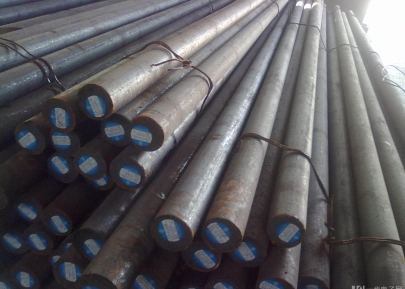The Essential Guide to Mould Bases: Understanding the Significance of Raw Copper Blocks in Manufacturing
In the manufacturing world, mould bases play an integral role in ensuring that products are produced with precision and durability. Among the many materials used in the construction of mould bases, raw copper blocks stand out due to their remarkable properties. This guide aims to delve deep into the significance of these materials in mould base manufacturing. We'll also explore other relevant materials like A2 Steel and address common queries, including where to buy copper plate.
The Importance of Mould Bases in Manufacturing
Mould bases provide the structural framework for manufacturing processes such as injection moulding and die casting. They act as both support and guide for the components involved, influencing the quality and consistency of the end product.
Key Functions of Mould Bases
- Support for mould cavity
- Alignment of mould components
- Heat dissipation during production
- Facilitating quick changes and maintenance
Why Choose Raw Copper Blocks?
The choice of material for mould bases is crucial, and raw copper blocks offer several advantages. Their excellent thermal conductivity, corrosion resistance, and ease of machining make them a popular choice among manufacturers.
Benefits of Raw Copper Blocks
- Thermal Conductivity: Copper naturally has high thermal conductivity, which allows for better heat distribution.
- Corrosion Resistance: It does not corrode easily, making it suitable for various environments.
- Ease of Machining: Raw copper blocks can be easily shaped and machined to precise specifications.
A2 Steel: Another Option
While raw copper blocks are advantageous, A2 Steel also presents a viable alternative for specific applications. This tool steel is known for its high wear resistance and toughness, making it suitable for heavy-duty mould applications.
| Material | Thermal Conductivity | Corrosion Resistance | Ease of Machining |
|---|---|---|---|
| Raw Copper Block | Excellent | Good | Easy |
| A2 Steel | Moderate | Fair | Moderate |
Factors to Consider When Choosing Mould Base Materials
Selecting the right material for your mould base requires consideration of several factors:
- Production Volume: Higher volumes may require materials that endure more wear and tear.
- Product Design: More complex designs may necessitate materials that can be easily machined.
- Budget: The cost of raw materials can vary significantly; copper tends to be pricier.
Where to Buy Copper Plates?
For manufacturers looking for raw copper blocks or plates, various sourcing options are available:
- Local hardware stores
- Metal suppliers
- Online marketplaces such as Amazon or eBay
- Specialty metal dealers
Maintenance of Mould Bases
Proper maintenance is vital for prolonging the lifespan of mould bases and ensuring consistent product quality. Regular cleaning and inspection can help catch any issues early on.
Maintenance Tips
- Clean mould bases regularly to prevent debris accumulation.
- Inspect for any signs of wear or corrosion.
- Lubricate moving parts as necessary to ensure smooth operation.
Common FAQs Regarding Mould Bases
What are the common materials used in mould bases?
Besides raw copper and A2 Steel, other materials include aluminum, brass, and various alloys, depending on application needs.
How do I estimate the cost of raw copper blocks?
The cost can vary based on weight, purity, and market fluctuations. It's best to check current prices from multiple suppliers.
Can mould bases be repaired?
In many cases, yes! Minor wear can often be machined away, but severe damage may require replacement.
Conclusion
In summary, choosing the right material for mould bases is crucial for the success of manufacturing operations. Raw copper blocks offer excellent thermal properties and corrosion resistance, making them indispensable in many scenarios. When combined with alternatives like A2 Steel, manufacturers can optimize their mould bases for specific applications. With proper care, maintenance, and sourcing methods, your mould bases will serve you well, leading to quality production for years to come.



